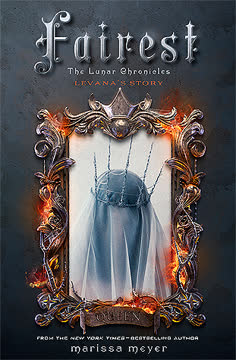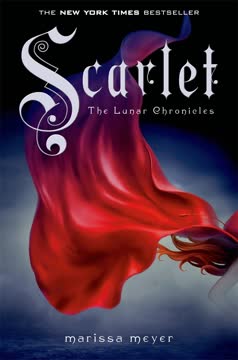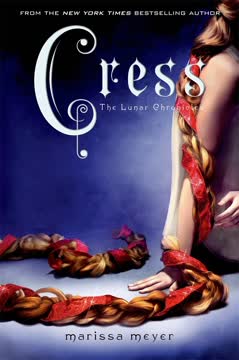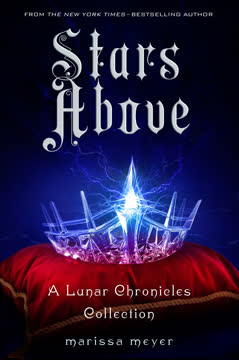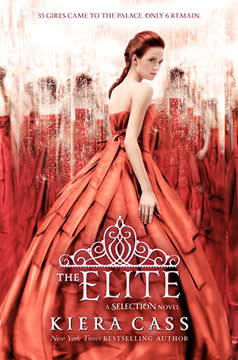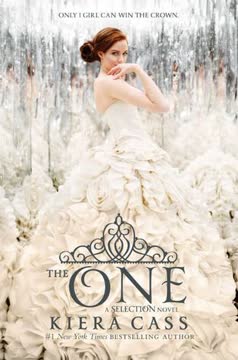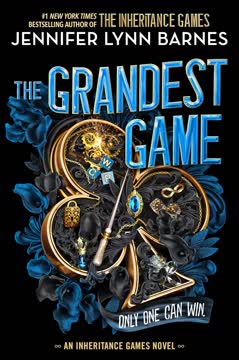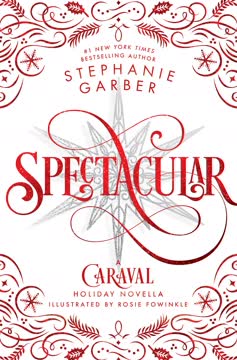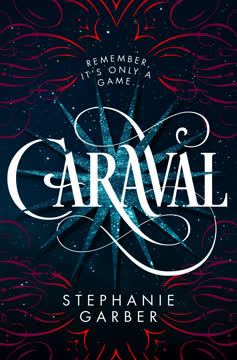Plot Summary
Burning Dreams, Shattered Reflections
Levana, the younger princess of Luna, wakes from a recurring nightmare of burning alive—a memory and a metaphor for her trauma. She is plagued by insecurity about her appearance, scarred from a childhood accident, and relies on her powerful glamour to mask her disfigurement. Her world is one of illusions, both literal and emotional, as she struggles to define herself in a palace where beauty is currency and power is everything. The death of her parents, assassinated by a shell immune to Lunar mind control, leaves Levana and her older sister Channary as the only heirs. Levana's sense of self is fragile, her longing for love and acceptance at odds with the cold, manipulative environment of the Lunar court.
The Funeral of Masks
At her parents' funeral, Levana is forced to maintain her glamour among the court's elite, all while her sister Channary basks in attention. Levana's emotional detachment from her parents' deaths is juxtaposed with her anxiety about public perception. She is introduced to Sir Evret Hayle, a royal guard she has secretly loved for years, and his pregnant wife, Solstice. The encounter stirs envy and longing in Levana, who is captivated by the genuine affection between Evret and Solstice. The funeral becomes a stage for performance, with Levana's grief and beauty both carefully constructed, underscoring the theme of appearance versus reality.
Sisters and Scepters
Channary, soon to be queen, is beautiful, capricious, and cruel, especially to Levana. Their relationship is fraught with rivalry and emotional abuse, with Channary mocking Levana's insecurities and using her power to humiliate her. Levana's attempts to assert herself are met with violence and derision. The sisters' dynamic is a microcosm of the court's values: power is wielded through manipulation, and vulnerability is punished. Levana's longing for recognition and love is continually thwarted by her sister's dominance, deepening her sense of isolation and fueling her desire for control.
The Guard and the Seamstress
Levana's obsession with Evret intensifies after meeting Solstice, whose warmth and beauty seem effortless. Levana visits Solstice's shop under a glamour, seeking both connection and a way to insert herself into Evret's life. She commissions gloves and a necklace, hoping to impress Evret and perhaps win his admiration. The encounter is tinged with jealousy and self-loathing, as Levana recognizes the happiness she covets in Solstice's life. Her actions are both a tribute and a challenge, as she tries to claim a piece of the love she feels denied.
Gloved Longings
Levana's fantasies about Evret and Solstice become more elaborate, blurring the line between admiration and appropriation. She tries on Solstice's glamour, imagining herself as the beloved wife and mother. Her longing is both romantic and predatory, as she seeks to possess what she cannot have. The coronation of Channary is a bitter reminder of Levana's secondary status, and her attempts to gain Evret's attention end in humiliation. The gloves and necklace become symbols of her yearning and her inability to truly belong.
Coronation and Envy
Channary's coronation cements her power, and Levana is forced to play the dutiful sister. The court's attention is on the new queen, and Levana's efforts to be noticed are futile. Her envy of Channary's effortless authority and popularity grows, as does her resentment of the court's superficiality. Levana's sense of self is increasingly tied to her ability to manipulate her appearance and the emotions of those around her. The seeds of her future ruthlessness are sown in her frustration and desire for validation.
The Invisible Princess
Levana adopts the glamour of invisibility, retreating from a world that refuses to see her true self. She becomes adept at hiding, both physically and emotionally, using her gift to shield herself from pain. Her relationship with Evret remains distant, and her attempts to connect are met with polite indifference. Levana's loneliness is profound, and her reliance on glamour becomes both a refuge and a prison. She begins to see manipulation as her only means of achieving the love and power she craves.
The Birth of Obsession
When Solstice dies in childbirth, Levana's obsession with Evret takes a darker turn. She rationalizes her feelings as fate, believing that Solstice's death is a sign that she and Evret are meant to be together. Levana's attempts to comfort Evret are clumsy and self-serving, revealing her inability to empathize with genuine grief. She begins to use her gift to influence his emotions, crossing the line from longing to coercion. The birth of Winter, Evret's daughter, becomes another point of fixation, as Levana imagines herself as the child's mother.
Marriage by Manipulation
Levana's pursuit of Evret culminates in a forced marriage, achieved through relentless emotional and mental manipulation. She uses her gift to erode his resistance, convincing herself that she is giving him the happiness he deserves. The wedding is a hollow victory, marked by Evret's resignation and Levana's desperate hope that love will follow. Their relationship is a facade, sustained by Levana's power and her refusal to accept rejection. The marriage is both a personal triumph and a moral failure, setting the stage for Levana's transformation into a tyrant.
The Queen's Shadow
With Channary's death, Levana becomes queen regent for her niece Selene. She embraces her role with zeal, implementing reforms and consolidating power. Her intelligence and ambition are evident, but so is her growing ruthlessness. Levana's inability to conceive an heir becomes a source of anxiety, and her relationship with Evret deteriorates further. She is haunted by the knowledge that her legitimacy is tied to Selene's existence, and she begins to see the child as both a threat and a burden. The shadow of her sister lingers, fueling Levana's determination to secure her place on the throne.
The Child and the Fire
Levana's jealousy and fear drive her to orchestrate Selene's death, staging a fire that is meant to look like an accident. The act is both calculated and desperate, a final attempt to eliminate the last obstacle to her absolute rule. The aftermath is a mix of relief and paranoia, as rumors persist that Selene survived. Levana's guilt is buried beneath layers of rationalization, and her capacity for self-deception grows. The murder of a child marks the point of no return, transforming Levana from a victim of circumstance into a perpetrator of evil.
The Crown's True Heir
Despite her efforts, Levana cannot escape the rumors that Selene is alive. She becomes increasingly paranoid, resorting to torture and surveillance to uncover the truth. Her reign is marked by fear and suspicion, as she eliminates perceived threats and tightens her control over Luna. The absence of an heir haunts her, and her relationship with Evret is irreparably broken. Levana's beauty becomes a mask for her insecurity, and her need for validation drives her to ever greater extremes.
The Mirror's Curse
Levana's obsession with beauty and perfection reaches its zenith as she destroys every mirror in the palace, unable to face her true reflection. Her reliance on glamour becomes total, and she commissions special glass that will never show her real face. The act is both symbolic and practical, a rejection of vulnerability and an embrace of illusion. Levana's identity is now inseparable from her power, and her humanity is subsumed by her role as queen. The mirror's curse is the curse of self-hatred, perpetuated by a lifetime of rejection and pain.
The Queen's War
Levana's ambitions extend beyond Luna as she develops biological weapons and a genetically engineered army to conquer Earth. Her strategies are ruthless, using disease and manipulation to weaken her enemies. The war is both literal and psychological, as Levana seeks to prove her superiority and fulfill her destiny. Her need for control is insatiable, and her willingness to sacrifice others for her goals knows no bounds. The pursuit of Earth becomes a metaphor for her endless hunger for validation and love.
The Price of Beauty
Levana's reign is marked by increasing isolation, as those closest to her—Evret, Winter, the court—are alienated or destroyed. Her beauty, once a source of power, becomes a barrier to genuine connection. The cost of her ambition is the loss of everything she once desired: love, family, acceptance. Levana's attempts to create a perfect world only deepen her loneliness, and her victories are hollow. The price of beauty is the loss of self, and the realization that power cannot fill the void within.
Love as Conquest
Levana's final attempts to win Evret's love end in tragedy, as he is murdered in a plot she herself set in motion. Her manipulation has destroyed the only person she ever truly cared for, and she is left with nothing but her crown and her regrets. The theme of love as conquest is revealed as a lie, a justification for cruelty and control. Levana's heartbreak is the inevitable result of her choices, and her inability to accept love on any terms but her own ensures her perpetual misery.
The End of Illusions
As Levana's story closes, she is queen in name but empty in spirit. Her legacy is one of fear and destruction, her triumphs built on lies and violence. The seeds of her eventual downfall are sown in her inability to love or be loved, and in her refusal to face the truth of who she is. The end of illusions is the beginning of tragedy, as Levana's reign sets the stage for the events of the Lunar Chronicles. Her story is a cautionary tale of the dangers of envy, the corrosive power of self-hatred, and the ultimate futility of seeking love through domination.
Characters
Levana Blackburn
Levana is the protagonist and eventual antagonist of her own story—a woman shaped by trauma, rejection, and a desperate need for love. Scarred physically by her sister's cruelty and emotionally by a lifetime of neglect, Levana becomes a master of glamour, using her gift to hide her disfigurement and manipulate those around her. Her longing for affection, particularly from Evret Hayle, drives her to increasingly unethical actions, culminating in coercion, murder, and tyranny. Levana's psychological complexity lies in her capacity for both vulnerability and ruthlessness; she is at once pitiable and monstrous. Her development is a descent into villainy, as her inability to accept herself or others' autonomy leads her to destroy everything she once desired. Levana's relationships—with her sister, her husband, and her stepdaughter—are marked by manipulation and tragedy, making her both a victim and a perpetrator in a cycle of pain.
Channary Blackburn
Channary is Levana's older sister and the initial queen of Luna. She is beautiful, charming, and utterly self-absorbed, wielding her power with caprice and malice. Channary's relationship with Levana is defined by mockery and abuse, both physical and emotional. She is a product of the court's superficial values, using her glamour and status to manipulate those around her. Channary's reign is marked by neglect and excess, and her early death leaves a legacy of instability and resentment. Her psychological shallowness is contrasted with Levana's depth, but her influence is profound, shaping Levana's insecurities and ambitions. Channary's daughter, Selene, becomes both her legacy and her sister's greatest threat.
Evret Hayle
Evret is a royal guard whose integrity and compassion set him apart in the Lunar court. He is devoted to his wife, Solstice, and later to his daughter, Winter. Levana's obsession with him is both romantic and destructive, as she cannot accept his lack of reciprocation. Evret's resistance to Levana's manipulations is gradually eroded, and he becomes a victim of her power, forced into a loveless marriage. His psychological resilience is tested by grief, coercion, and the loss of agency, and his eventual death is a tragic consequence of Levana's ambition. Evret's relationship with Levana is a study in the limits of empathy and the dangers of unchecked power.
Solstice Hayle
Solstice is Evret's beloved wife, a talented seamstress whose warmth and artistry captivate both her husband and Levana. She represents the happiness and authenticity that Levana craves but cannot attain. Solstice's kindness to Levana is genuine, but it only deepens Levana's envy and sense of inadequacy. Her death in childbirth is a turning point, removing the last barrier to Levana's pursuit of Evret and setting in motion a chain of manipulation and tragedy. Solstice's legacy endures in her daughter, Winter, and in the memory of a love that Levana can never replace.
Winter Hayle
Winter is the daughter of Evret and Solstice, later adopted by Levana. She is strikingly beautiful, even as a child, and becomes a source of both pride and resentment for Levana. Winter's innocence and vulnerability highlight the consequences of Levana's actions, as she is used as a pawn in the queen's quest for legitimacy. Her relationship with Levana is distant and fraught, marked by neglect and emotional coldness. Winter's presence is a reminder of what Levana has lost and what she can never truly possess: genuine love and acceptance.
Selene Channary Jannali Blackburn (Cinder)
Selene is Channary's daughter and the rightful heir to the Lunar throne. As a child, she is innocent and unaware of the danger she represents to Levana. Her existence is a constant source of anxiety for the queen, who ultimately orchestrates her apparent death. Selene's survival, hinted at through persistent rumors, becomes a specter haunting Levana's reign. Psychologically, Selene is both a symbol of hope for Luna and the embodiment of Levana's deepest insecurities. Her fate is central to the larger narrative of the Lunar Chronicles.
Sybil Mira
Sybil is a thaumaturge who rises to become Levana's head advisor. She is intelligent, ambitious, and adept at both political maneuvering and psychological manipulation. Sybil's loyalty to Levana is pragmatic, rooted in shared ambition rather than genuine affection. She is instrumental in enforcing Levana's will, particularly in the suppression of dissent and the investigation into Selene's fate. Sybil's presence is a constant reminder of the dangers of unchecked power and the ease with which morality can be subverted in the pursuit of order.
Joshua Haddon
Haddon is the head thaumaturge and a key architect of Luna's military and scientific advancements. He is pragmatic and ruthless, willing to pursue any means to achieve his goals. Haddon's relationship with Levana is transactional, based on mutual benefit rather than trust. His involvement in the development of biological weapons and the manipulation of the court's power dynamics makes him both a valuable ally and a potential threat. His eventual betrayal and death at Levana's hands underscore the precariousness of alliances built on ambition.
Garrison Clay
Garrison is a fellow guard and friend to Evret, representing the ordinary citizens of Luna. His family's presence in Levana's life provides a contrast to the dysfunction of the royal household. Garrison's loyalty to Evret and his skepticism of Levana's motives highlight the moral complexities of the court. He serves as a reminder of the humanity that persists outside the palace walls, and his family's interactions with Winter and Selene offer glimpses of normalcy amid chaos.
Dr. Eliot
Dr. Eliot is the royal physician, responsible for the health of the royal family and the delivery of critical news. She is professional and discreet, navigating the treacherous politics of the court with care. Dr. Eliot's involvement in the aftermath of Selene's "death" places her in a precarious position, as Levana's paranoia leads to suspicion and interrogation. Her role underscores the vulnerability of those who serve the powerful, and the ease with which innocence can become collateral damage in the pursuit of control.
Plot Devices
Glamour and Illusion
The central device of the narrative is the Lunar gift of glamour—the ability to manipulate appearance and emotions. For Levana, glamour is both a shield against her own insecurity and a tool for domination. It allows her to hide her scars, project beauty, and control others' perceptions and feelings. The motif of illusion extends to the court itself, where appearances are everything and truth is malleable. Glamour becomes a metaphor for the lies we tell ourselves and others, and the dangers of losing oneself in the pursuit of perfection.
Unreliable Narration and Self-Deception
Levana's perspective is deeply unreliable, colored by trauma, envy, and self-justification. Her rationalizations for her actions—coercion, murder, manipulation—are presented as necessary or even benevolent. The narrative structure invites readers to question the validity of her perceptions and the morality of her choices. This device heightens the psychological complexity of the story, blurring the line between victim and villain, and challenging readers to empathize with a character who is both pitiable and monstrous.
Foreshadowing and Tragic Irony
Throughout the story, there are subtle and overt hints of Levana's eventual downfall, from the persistent rumors of Selene's survival to the growing unrest among the people. The use of tragic irony—Levana's efforts to secure her power ultimately sowing the seeds of her destruction—creates a sense of inevitability. The narrative structure mirrors a classical tragedy, with Levana's flaws leading inexorably to her undoing. The reader is invited to witness the making of a villain, knowing that her reign will end in ruin.
Symbolism of Mirrors and Fire
Mirrors are a recurring symbol, representing both self-knowledge and self-loathing. Levana's destruction of every mirror in the palace is an act of denial, a refusal to confront her true self. Fire, both literal and metaphorical, symbolizes transformation, pain, and the consequences of unchecked ambition. The interplay of these symbols underscores the themes of identity, beauty, and the cost of power.
Analysis
Fairest is a masterful psychological portrait of a villain in the making, exploring how trauma, envy, and the hunger for love can curdle into cruelty and tyranny. Marissa Meyer crafts Levana as both a product and a perpetrator of her environment—a woman whose longing for acceptance is twisted by rejection and abuse into a relentless pursuit of control. The novel interrogates the nature of beauty, the dangers of self-deception, and the corrosive effects of power wielded without empathy. Levana's reliance on glamour is both a literal and figurative mask, hiding her scars from the world and from herself. Her story is a cautionary tale about the perils of seeking validation through domination, and the emptiness that lies at the heart of conquest. In a modern context, Fairest resonates as a meditation on the costs of perfectionism, the psychological roots of toxic leadership, and the human need for connection. The lesson is clear: true power lies not in the ability to control others, but in the courage to face oneself.
Last updated:
Review Summary
Fairest by Marissa Meyer is a prequel novella in The Lunar Chronicles series, providing backstory for the villainous Queen Levana. Readers found it fascinating to explore Levana's twisted mind and tragic past, though many struggled to sympathize with her despite her difficult upbringing. The novella offers insights into Luna's history and other characters' origins, enhancing the overall series experience. While some felt it unnecessary, most fans appreciated the added depth to Levana's character and the buildup to the final book, Winter.
The Lunar Chronicles Series
Similar Books
Download PDF
Download EPUB
.epub digital book format is ideal for reading ebooks on phones, tablets, and e-readers.
